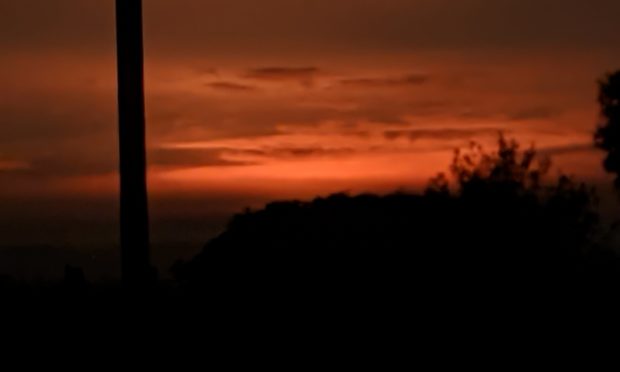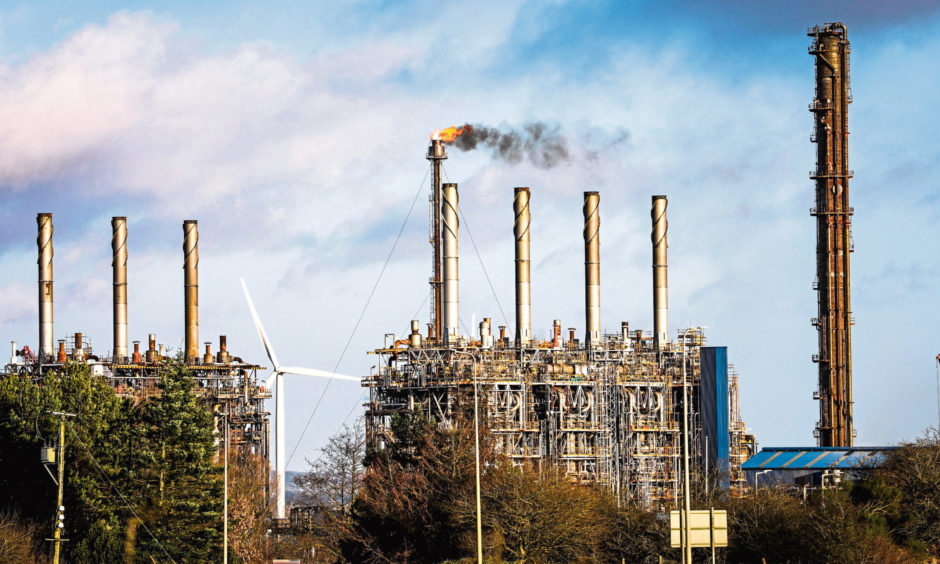An investigation must be held to ensure the giant Mossmorran petrochemical complex is fit to cope with the impacts of climate change, an MSP has said.
Scottish Greens politician Mark Ruskell has called for a review after Tuesday’s thunder, lightning and torrential rain led to a power cut and flooding at the Fife site.
Both Shell UK and ExxonMobil were forced to resort to elevated flaring as flooding meant use of the ground flares was limited.
While Shell has since returned to normal operations at its NGL Plant, flaring, smoke and vibrations continued on Thursday at Exxon’s Fife Ethylene Plant, which has already been referred to the Crown Office for a separate incident.
As officers from environment watchdog Sepa deployed officers to assess the impacts on the community, Mr Ruskell said it was ironic that an oil and gas plant that contributed to global warming could not cope with exteme weather.
“This is a serious immediate issue for those who live in its shadow,” he said.
“The light, noise and vibrations suffered by local residents have been going on for years.
“It is critical that the Health and Safety Executive and Sepa now review in detail whether the plant is fit to deal with the impacts of climate change.”
Environment secretary Roseanna Cunningham said Tuesday’s weather had been “unprecedented” and said it would be better to wait for detailed information from Sepa before jumping to any conclusions.
“Sepa is currently engaging very strongly with Mossmorran to ascertain exactly what happened and I think there’s still a question mark over what has happened there,” she said.
Sepa said both companies at Mossmorran had taken steps to reduce the rate of flaring and were using available ground flares to cut the amount of gas going to the elevated flare.
A spokesperson said: “Sepa is clear on the need to minimise elevated flaring and our ongoing contact with both companies will continue until the full restoration of normal operations.”
Fife Ethylene Plant manager Jacob McAlister said: “We are making good progress towards safely returning to normal production following the extreme weather early yesterday morning.
“Our team has taken a number of actions to significantly reduce the size of the flare, and we continue to look for ways to further optimise.
“As we move through these final stages, you may see some fluctuations in flare size but, as always, we will work hard to keep this to a minimum.
“As you will appreciate, we are putting safety first, but we are committed to completing the required steps as quickly as possible.
“We thank communities for their continued patience and apologise for any disruption.”
Elevated flaring operates as a safety valve when one or both of the plants are not processing properly.
Fife Ethylene Plant has been the subject of numerous complaints over several years due to safety fears and the impact of light and noise pollution.











